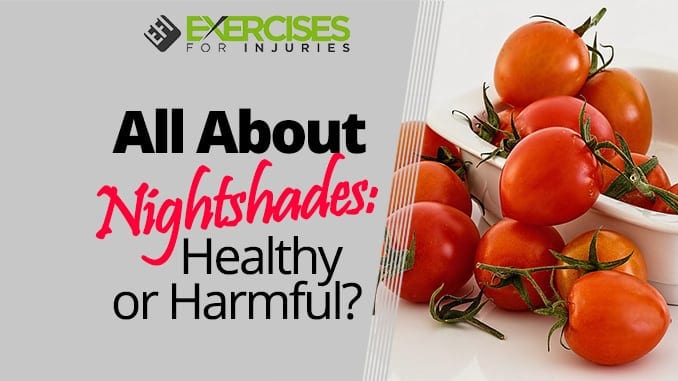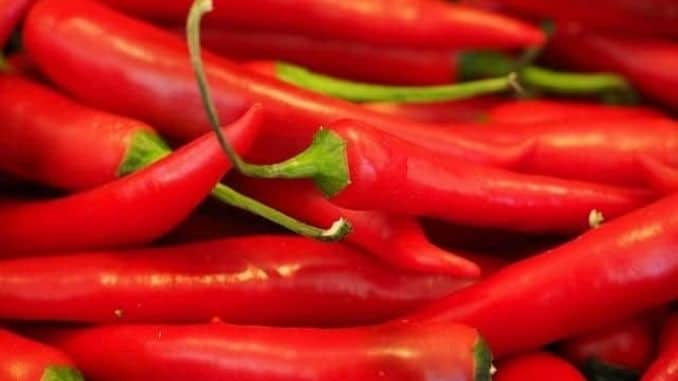
New England Patriots quarterback Tom Brady released his book, The TB12 Method: How to Achieve a Lifetime of Sustained Peak Performance, in September 2017. The book delves into Brady’s diet and workout regimen, including insights on whether certain foods, such as nightshades, are healthy or harmful to overall health.
Plenty of people are interested, judging from the fact that the book reached bestseller status on Amazon while still in pre-order status. Fans and health enthusiasts alike want a glimpse into the record-setting National Football League star’s secrets to success. Brady is the first quarterback in NFL history to win five Super Bowl championships. He just turned 40 in August 2017 and continues to be at the top of his game. How does he do it?
Readers of this blog will likely be interested in his training regimen, but of equal interest is Brady’s diet. He’s spoken about it frequently as has his personal chef Allen Campbell, who revealed Brady’s diet restrictions to the Boston Globe. Along with sugar, coffee and caffeine, Brady stays away from “nightshades,” a group of vegetables that belong to the Solanaceae plant family.
Are nightshades healthy or harmful? Proponents of the paleolithic diet also believe that these vegetables are best left off the menu. Why would this be, and should you be avoiding nightshades too?

What Are Nightshades?
Are nightshades healthy or harmful? All nightshades belong to the Solanaceae family of the Solanum genus, which includes thousands of species of flowering plants. The term “nightshade” most likely came from the fact that these plants prefer to grow in shady areas and may choose the nighttime to bloom.
Most nightshade plants are not edible. Belladonna (the deadly nightshade), mandrake and datura (jimsonweed), for example, are all nightshade plants that produce poisonous berries. However, some nightshades produce edible fruits and tubers that are very popular in our modern-day diet. These include:

- White potatoes (not sweet potatoes or yams)
- Tomatoes
- Eggplant
- Bell peppers
- Cayenne peppers
- Chili peppers
- Okra
- Goji berries
- Paprika
These foods may not look very similar at first glance, but they do all have something in common: they all contain alkaloids, which some feel may be linked to certain health problems.
Nightshades Contain Alkaloids
Are nightshades healthy or harmful? Alkaloids are naturally occurring chemicals that are made up mostly of nitrogen atoms. They’re found primarily in flowering plants, although they’re also found in some animals and can be made synthetically in the laboratory. The highest concentration of alkaloids is usually found in leaves, flowers and unripe fruits. However, as the fruit ripens, the alkaloid content decreases.
Although scientists aren’t yet sure what purpose alkaloids serve in various plants, they have some ideas. One is that the alkaloids are protective — the plant uses these compounds to protect itself from insects, pests and animals. They may prevent insects and animals from eating them or discourage parasites.
Alkaloids have also been connected to plant growth. Scientists have seen levels of alkaloids increase in some plants prior to seed formation, and then drop off again when the seed ripens. They may be involved in other biological processes that we aren’t yet aware of.
The alkaloids that exist in nightshade plants are just as varied as the plants themselves. There are more than 3,000 different types of alkaloids that have been identified. All plants in the poppy family, for example, are believed to contain alkaloids — as many as 30 different types in some species. The first alkaloid to be isolated was morphine from the opium poppy, back in 1804.
Medical Benefits
Indeed, a number of alkaloids have medicinal benefits. Morphine and codeine are both pain relievers. Quinidine is used to treat heart arrhythmia. Novocaine helps you endure dental surgery. Ergonovine reduces the risk of hemorrhage, and ephedrine helps relieve sinus pressure. Curare serves as a muscle relaxant during surgery, and vincristine and vinblastine are widely used to treat cancer. Even alkaloids from belladonna (atropine), the deadly nightshade, can help relieve pain and reduce muscle spasms.
On the other hand, some alkaloids are dangerous for our health. Nicotine, for example, is the principal alkaloid from tobacco. Other alkaloids are used to produce illicit drugs like hallucinogenics, heroin and LSD. Coniine is the active component of the poison hemlock. Strychnine, a poison, is an alkaloid.
It becomes clear that not all alkaloids are the same — far from it. So, which ones usually occur in our edible foods?
There are several, but the main ones in the foods listed above include tomatine (in tomatoes), solasonine (in potatoes and eggplants), and capsaicin (in peppers).
Are nightshades healthy or harmful? Let’s delve deeper into this question.

Concerns About Specific Alkaloids in Edible Nightshades
Solanine and tomatine are both glycoalkaloids, which means that they are an alkaloid merged with a sugar (glyco). The sugar is separated from the alkaloid during metabolism.
At very high levels, these glycoalkaloids can be toxic to humans. The United States Food and Drug Administration (FDA) has set an upper limit for total glycoalkaloids as 200 micrograms/gram in one potato. Yet most potatoes come in at only 25-75 micrograms/gram, and that’s before cooking.
Anytime we prepare these foods, we lower the levels of alkaloids. The levels are already much lower in the foods we eat than in a sprouted potato, for example, or a green tomato. Peeling, cooking and preparing these foods via baking, boiling, frying and so on lowers those levels further.
FDA Poisonous Plant Database
According to the FDA Poisonous Plant Database, solanine also has a low rate of absorption in the bloodstream and is converted in the digestive system to a less toxic and poorly absorbed product. The U.S. National Toxicology Program states that the average American eats at most 12.5 milligrams per day of solanine from potatoes. Eggplants have very low levels, as well, and a ripe tomato may contain nearly none.
Even at these lower levels, however, these alkaloids can cause problems in some people who may be sensitive to them. Those suffering from digestive issues — such as irritable bowel syndrome (IBS) and inflammatory bowel diseases (IBD) — allergies or autoimmune conditions have reported experiencing symptoms after consuming nightshades. These may include digestive upset like nausea, vomiting, cramps and diarrhea, along with headaches and throat irritation.
Some may be allergic to alkaloid-containing food as well. In a 2008 study, researchers found that nearly 10 percent of participants reported some allergic symptoms after eating an eggplant, although they couldn’t tell if that was because of the alkaloids or other factors in the vegetable.
Those who are extremely allergic to them may experience more severe symptoms immediately after eating like fever, dizziness and hallucinations. For these and others with sensitivities, avoiding nightshades may provide some relief.
However, does that mean we should all avoid nightshades?

Do Nightshades Promote Inflammation?
One of the reasons people think they should avoid nightshades is that they have heard they promote inflammation. We now know that chronic internal inflammation is extremely dangerous and can lead to a number of health problems including heart disease, stroke, cancer and more.
Campbell told the Boston Globe that he keeps nightshades off Brady’s menu for this reason. “So, no tomatoes, peppers, mushrooms or eggplant,” he says. “I’m very cautious about tomatoes. They cause inflammation.”
Why would he think this, especially when tomatoes are full of healthy things like vitamins | 404 and disease-fighting flavonoids like lutein?
Many people have bought into this idea, thinking they should avoid nightshades to reduce inflammation, particularly if they have arthritis or other inflammatory conditions. This seems to be an effective approach, however, only in those people who have sensitivities to alkaloids.
Those who are sensitive or allergic to these foods or alkaloids may, indeed, experience some inflammation in the digestive system in response to eating them. That can increase symptoms of an autoimmune disorder, in which case avoiding these foods may help.
In the early 1990s, for example, researchers noted that nightshades “are an important causative factor in arthritis in sensitive people.” The theory was that consuming a number of nightshades and alkaloids in a day could result in a buildup of glycoalkaloids in the system that could then cause inflammation, pain and stiffness in those who are sensitive.
When these individuals stopped consuming these foods, they reported a reduction in symptoms. More recent animal studies also showed that glycoalkaloids can aggravate intestinal inflammation in subjects who already had IBD.
Are Nightshades Healthy or Harmful?
For most people, though, this doesn’t seem to be the case. Some studies have indicated that nightshades reduce inflammation. In 2011, for example, researchers showed that consuming yellow and purple potatoes lowered blood markers for inflammation.
In 2013, researchers gave patients with arthritis an alkaloid supplement (anatabine) and found that 82 percent reported significant pain and stiffness relief. Previous studies showed this alkaloid (found in potatoes, tomatoes, peppers and eggplant) to have anti-inflammatory properties.
The Arthritis Foundation states that no formal research has confirmed the claim that nightshades are culprits in arthritis pain, but they do acknowledge that some people may have certain sensitivities to them.
So, are nightshades healthy or harmful, and should you avoid them?

Could It Be the Capsaicin, Calcitriol or Lectins Instead?
Even if you don’t have trouble consuming the alkaloids mentioned above, nightshades may present issues for you because of other nutrients inside them.
Peppers, for example, contain an alkaloid called capsaicin which is such a strong pain reliever, it frequently appears in arthritis and other analgesic creams. It can also be irritating to the digestive system, however, and has been linked with heartburn and reflux.
Those who are sensitive to this alkaloid or peppers, in general, may experience more of these symptoms. For most people, taking it easy with these peppers can result in benefits without side effects.
Lectins in Nightshades
Nightshades also contain lectins, a class of proteins that bind to sugar. They have been linked with some food sensitivities and can reduce the body’s ability to absorb certain nutrients. Typically, they travel through the digestive system unchanged and are expelled as waste., However, in some people, they can bind to the intestinal wall, triggering inflammation.
Lectins and Autoimmune Reactions
Lectins may increase autoimmune reactions by contributing to what is called “leaky gut” syndrome. This is a condition in which the intestines have been damaged and are no longer able to keep potentially damaging substances out of the bloodstream. A leaky gut can increase the risk of an autoimmune reaction, where the immune system detects the “invader” and attacks, causing inflammation.
A couple of small studies indicated that lectins can compromise the intestinal barrier in individuals with dysfunctional enzymes. One study noted that this action can, in turn, worsen autoimmune conditions like rheumatoid arthritis. However, we don’t have studies specifically on the lectins in nightshades, so we can’t say if these would cause any damage in sensitive people. Cooking nightshades reduces lectin levels. Other foods that contain lectins include red kidney beans, soybeans, wheat, and peanuts.
Calcitriol in Nightshades
Finally, nightshades contain calcitriol, which is a highly active form of vitamin D. It plays an important role in calcium absorption and bone development. Some have suggested that the calcitriol in nightshades may lead to excessive amounts of calcium, causing levels to spike in the blood. This, in turn, could lead to extra calcium being deposited into joints and other soft tissues. So far, however, we have no studies showing this to be the case, and nightshades are relatively low in calcitriol compared to other foods.
So, the impact of nightshades on your health can vary depending on individual sensitivities and other factors. Are nightshades healthy or harmful? It’s a complex question with no one-size-fits-all answer.

Nightshades Provide a Number of Important Health Benefits
It’s important to remember a few things when considering what to do about are nightshades healthy or harmful in your diet:
- The number of alkaloids in a serving of a nightshade vegetable is very small and unlikely to bother most people. The amount is reduced further by cooking — often by half.
- Nightshade foods are common in a number of diets, including ethnic ones and have not been associated with ill effects.
- Nightshades contain a number of nutrients with proven health benefits.
- The studies linking the makeup of nightshades to potential problems are small and few, and many are in animals, which have different responses than humans. In addition, many of these studies are on isolated chemicals rather than on the whole food. Whole foods contain a number of nutrients working together, which can alter how it acts in the body significantly. We need a lot more research on this matter before making blanket statements as to what nightshades will do in the average person.
- If you enjoy eating nightshades and experience no negative symptoms, there’s no reason to eliminate them from your diet.
Meanwhile, we do have plenty of evidence that nightshades provide a number of health benefits. In addition to those mentioned at the start of this article, we also know the following:
Tomatoes
Tomatine, the alkaloid in tomatoes, has been shown in studies to help lower LDL cholesterol, reduce plaque in arteries and inhibit cancer growth. It also contain the antioxidant lycopene, which has been found in studies to help reduce the risk of prostate cancer and is known to help protect the eyes against sun damage that can lead to cataracts and age-related macular degeneration. Tomatoes are rich in vitamin C, which helps reduce the risk of cancer, and they also have a good amount of fiber, which is associated with improved heart and digestive health.
Bell peppers
Bell peppers are also a great source of vitamin C, which helps boost the immune system, as well as vitamins B and E. They are rich in various types of antioxidants linked with reduced risk of heart disease, cancer, and diabetes. Just one cup of green bell pepper slices provides over 300 micrograms of lutein and zeaxanthin, both very important carotenoids in eye health. Finally, they are a good source of potassium, which helps regulate fluids and mineral balance. On top of that, they’re low in calories.
Chili peppers
Capsaicin, the alkaloid in peppers, is a powerful anti-inflammatory and pain reliever. It’s so effective that it’s being studied as an effective treatment for arthritis and diabetic neuropathy. Topical capsaicin is widely used as a treatment for osteoarthritis pain. Those with psoriasis have also found relief with it in some studies. Red chili peppers have been associated with reduced blood cholesterol and a decreased risk of heart attack. Meals that contain chili pepper were also found to help reduce blood sugar levels.
Eggplants
These are high in an antioxidant called anthocyanin, which reduces the risk of heart disease and protects the fats in brain cell membranes. Eggplants also contain chlorogenic acid, one of the most potent antioxidants available and one found to help reduce LDL “bad” cholesterol and kill cancer cells. Eggplant is another low-calorie option and is a good source of heart-healthy fiber.
Potatoes
Alkaloids in purple potatoes have been found to help slow the rate of cancer growth. Potatoes are also a good source of vitamins C and B6, contain more potassium than a banana and, in their natural cooked state, are fat-free. They are a good source of fiber and have recently been found to be a source of kukoamines, which can help lower blood pressure. Baked or boiled, potatoes are also easy to digest for most people.
What to Use When You Eliminate Nightshades
If you have sensitivities to are nightshades healthy or harmful or the ingredients in them, or if you suffer from conditions involving swelling and pain, you may find some relief in eliminating nightshades from your diet. If you decide to give it a try, you may wonder: what do I eat instead?
We’ve got some suggestions for you:
- Instead of potatoes, enjoy sweet potatoes or yams. You can also substitute mashed cauliflower or butternut squash for mashed potatoes.
- Instead of cayenne pepper, use black pepper or white pepper to spice up your food. Cloves, ginger and horseradish may also work well, depending on your recipe.
- Instead of bell peppers, choose celery, radishes, cucumbers, zucchini, yellow squash or carrots.
- Instead of eggplant, use shiitake or Portobello mushrooms in your recipes. Zucchini and yellow squash may also work.
- Instead of tomato-based sauces, try sauces made with olive oil, olives, onions and garlic. Pumpkin-based sauce also works well.
- Instead of tomatoes, use beets.
If you want to know what foods will help you shape up and shed inches while providing natural cure to illnesses, then check out the Best Foods That Rapidly Slim & Heal In 7 Days program, here!

